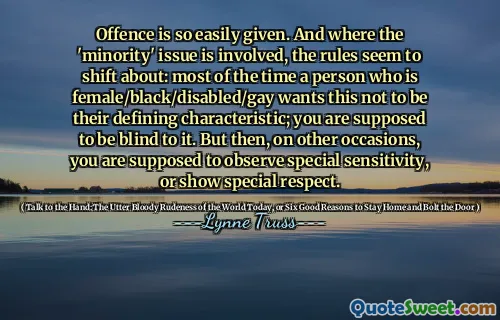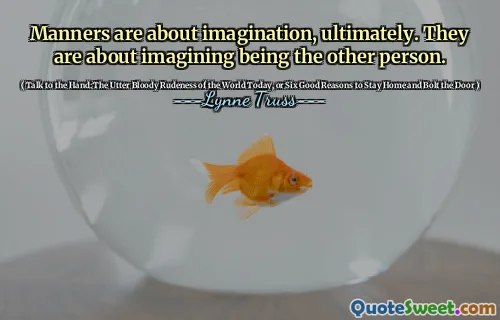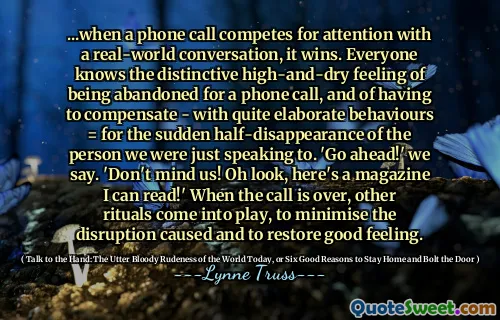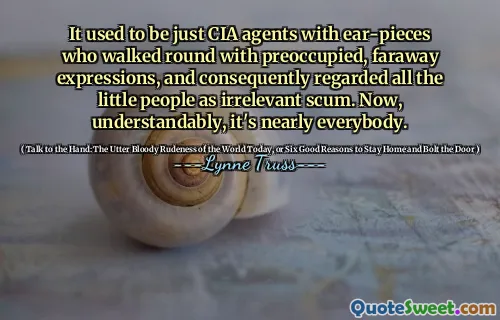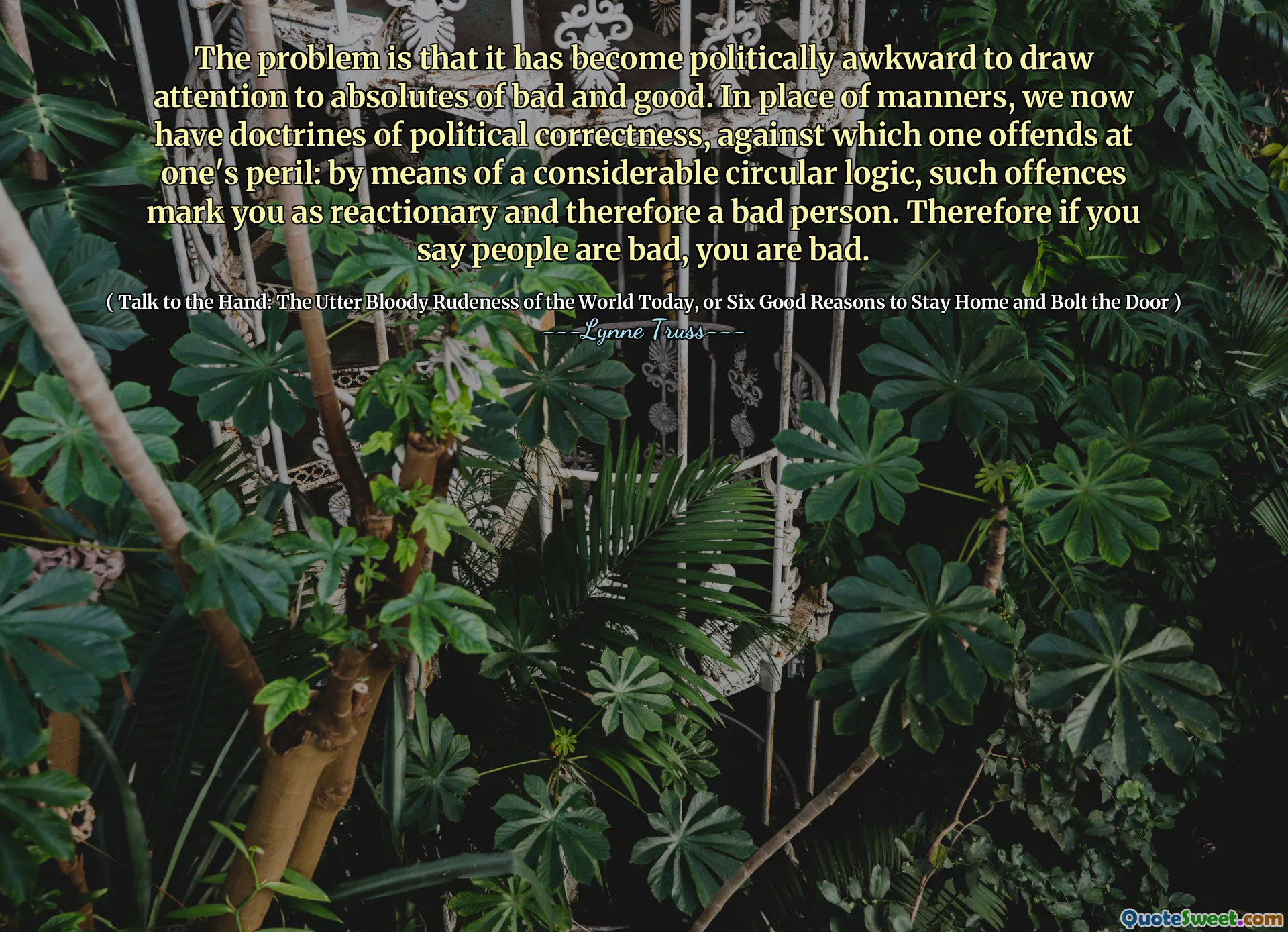
The problem is that it has become politically awkward to draw attention to absolutes of bad and good. In place of manners, we now have doctrines of political correctness, against which one offends at one's peril: by means of a considerable circular logic, such offences mark you as reactionary and therefore a bad person. Therefore if you say people are bad, you are bad.
Lynne Truss discusses the increasing difficulty of labeling actions or individuals as either good or bad in contemporary society. She notes that political correctness has created a climate where expressing negative judgments can lead to backlash, making it socially risky to discuss moral absolutes. This shift has transformed the conversation about manners into a complex web of social expectations, where dissent from accepted norms can brand someone as intolerant or reactionary.
Truss emphasizes that this climate discourages honest dialogue about morality, as the fear of being labeled a 'bad person' for criticizing others stifles meaningful conversations. As a result, the ability to express personal opinions about right and wrong has diminished, leaving individuals apprehensive about how they engage with social issues. The implications of this trend highlight a broader concern for societal discourse and the importance of open discussions on morality.
